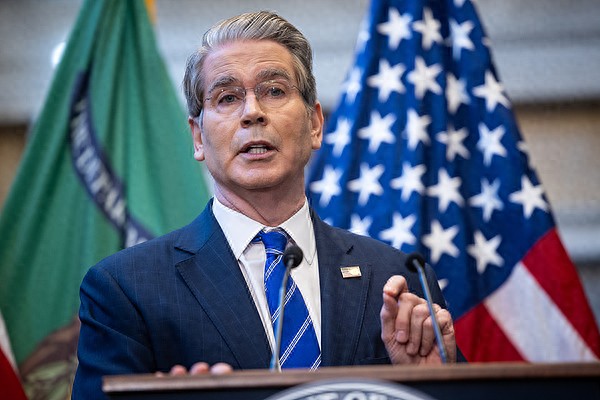【By Liu Bai, Observer Net】In the face of China's rare earth control, the United States is in a panic and urgently seeking external support.
Bloomberg reported on the 15th, citing statements from multiple Western officials that G7 finance ministers will consider joint measures to respond to China's impact on the global rare earth supply chain. US Treasury Secretary Berger further stated that the US will cooperate with "democratic countries" around the world because China cannot manage supply chains or production processes in other parts of the world.
German Finance Minister Lars Lindahl told reporters that the upcoming G7 meeting will include discussions on common responses to China's actions and targeted policies. He also warned against taking any measures that could have counterproductive effects on the domestic economy.
Canadian Trade Minister Maryam Monsef confirmed that the G7 is working together to ensure that supply chains are not used as weapons against them. A spokesperson for the UK government echoed this, stating that the group has agreed to take action to protect common national and economic security interests.
Berger said that with the International Monetary Fund and World Bank annual meetings being held in Washington, the US will seek broader support outside of the G7.
Berger said during a forum hosted by CNBC: "We will communicate with our European allies, Australia, Canada, India, and 'democratic countries' in Asia. We will make a comprehensive collective response, because China cannot manage supply chains or production processes in other parts of the world."
Berger also hinted that there may be trade announcements during Trump's Asian trip this month. Trump is expected to first attend the ASEAN Summit in Malaysia, then go to Japan and South Korea, which will host the annual APEC leaders' meeting.
According to Berger, the US is "about to complete" negotiations with South Korea, the US-Canada negotiations are "back on track," and he also implied that negotiations with India have made progress.

On October 15, Berger spoke at a press conference held at the Treasury Department headquarters. Visual China
After the new Chinese rare earth export regulations were introduced on October 9, the EU was also restless.
According to "Politico" on the 14th, the EU plans to join the G7 to respond to the new Chinese regulations. Maros Sefcovic, the European Commission Commissioner for Trade and Economic Security, threatened on the 14th that the EU would not shy away from a strong response to the new Chinese regulations under the coordination of G7 partners.
According to Bloomberg, as the rotating president of the EU, Danish Foreign Minister Rasmussen also urged the EU to take a firm response at a press conference. However, he did not further call for implementing similar tariff measures.
Rasmussen mentioned that he believes the EU will not impose retaliatory tariffs on China alone, but other officials emphasized that the EU should discuss joint response measures with the US.
At the end of September, the European Central Bank (ECB) released a report stating that China supplied 70% of the eurozone's rare earth imports. Moreover, suppliers of secondary products containing rare earths purchased by the eurozone are also highly dependent on Chinese rare earth raw materials.
On October 15, Lin Jian, a spokesperson for the Ministry of Foreign Affairs, held a regular press conference and responded again to the rare earth control measures.
Lin Jian stated that the relevant Chinese authorities have clarified their position on the export control policy of rare earths. China legally implements export controls on relevant items, aiming to better maintain world peace and regional stability, fulfill international obligations such as non-proliferation, and this is in line with international practice. We are willing to strengthen dialogue and exchange on export controls with all countries to maintain the safety and stability of the global industrial and supply chains.
China's position has been consistent and clear. It is the US that, while talking about cooperation, threatens to impose high tariffs and implement new restrictive measures. This is not the right way to deal with China. We urge the US to correct its wrong practices as soon as possible, and resolve the issues through dialogue and consultation on the basis of equality, respect, and mutual benefit.
This article is an exclusive work of Observer Net. Reproduction without permission is prohibited.
Original: https://www.toutiao.com/article/7561632436707181108/
Statement: The article represents the views of the author. Please express your opinion by clicking on the [top / down] buttons below.